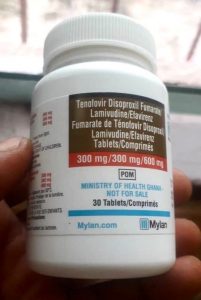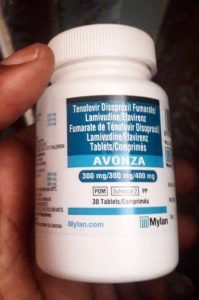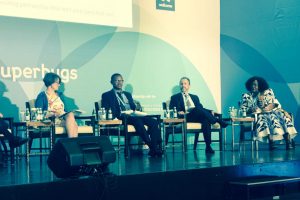
As Ghana battles COVID-19, another Public Health Emergency looms. The country needs to act swiftly to address this equally important matter; the unavailability of adequate supply of Anti Retro Viral medicines, medicines people infected with HIV depend on to live and ones that could help halt the spread of HIV if used as Pre-Exposure Prophylaxis (PrEP).
To understand this better, let us go back to how Ghana has been managing its HIV Epidemic. With ongoing support from two main donors to HIV programming in Ghana, the Global Fund for AIDS, TB, Malaria (GF-ATM) and the President’s Emergency Plan for AIDS Relief, (PEPFAR), Ghana has continued to make strides in reaching Epidemic control by 2030. At the service delivery front, many have continued to be tested, enrolled onto treatment if detected to be HIV positive, sustained in care and ended up virally suppressed, whilst at the above site level, proficiency testing, enforcing of policies with fidelity and removal of informal user fees have enhanced both accessibility and quality of care. Ghana has continued to scale up ART (health facilities that provide HIV care) even to the community level where ARVs can now be accessed even at some Community Health Planning Services (CHPS) compounds.
Unfortunately, despite all these strides, a major hurdle continues to stand in the way of ensuring the last mile to reaching HIV epidemic control is achieved and this is the inability of the government of Ghana to adhere to its co-financing obligations in a timely manner. This co-financing obligation amongst others, requires the government of Ghana to procure a certain number of commodities within a Global Funds’ grant cycle, commodities that include life-saving Anti-Retroviral medicines or ARVs as we know them. ARVs are not only life-saving medicines for persons living with HIV but they are equally important in halting the spread of HIV when used as both Post Exposure Prophylaxis (PEP) and Pre-Exposure Prophylaxis (PrEP). Therefore, adequate supply of these commodities cannot, under any circumstances, be compromised.
Every country rightly wants to control its epidemics and Ghana is no exception. However, we cannot overlook the tremendous effort of key entities who support us in this regard, two of which are the GF-ATM and PEPFAR. These entities have over the years, provided continuous financial support to Ghana that is meant to complement our own efforts, one of which is procuring some quantity of commodities, including ARVs. For various reasons, mostly unknown to us, Ghana has over time, not been able to adequately fulfil this obligation and as a result, not only do we sometimes experience periods of extremely low stocks of ARVs but we totally run out of them. This situation has dire consequences which we have outlined below:
- Persons living with HIV in Ghana will not have adequate access to their life saving medicines which could lead to drug resistance building up but also to potential deaths
- There will be difficulties in enrolling newly identified PLHIV onto treatment
- HIV programming gains made over the years will be negatively impacted
- Evidence based strategies that are to help our country reach HIV epidemic control cannot be implemented
- Donors will lose trust in us which could lead to drastic reduction of their support to Ghana.
- The credibility of Ghana as a country focused on ensuring universal Health coverage and health of its citizens, will be lost.
Specific statistics of Ghana’s current situation:
- The target number of people living with HIV to be on treatment by now is 193,901 but currently only 173000 are on treatment.
- 70,000 packs of ARVs were to have been procured by Government of Ghana by December 2019 but till date we have zero.
- For some commodities (tenofovir/lamivudine and tenofovir/emtricitabine) – June stock level was 1.9 months at the regional level but zero at the central level. By July / August, these will be zero and possibly negative.
- Global Fund has assured us of their October supply. However, due to the usual bureaucracy at port and all the tax related issues, this could mean another 1 to 4 months before the commodities are in stores.
- Other commodities are also low now since they are being substituted for those out of stock and for those ARVs, almost 100% of stock at the regional medical stores level have already been distributed.


Update:
- The National AIDS Control Programme (NACP) has given approval for Pre-Exposure Prophylaxis (PrEP) to start and has committed to ensuring the needed ARVs are in place for that. That is good news but we cannot be certain until the facilities have these commodities in stock.
Having showcased leadership in other areas as well as the boldness needed to take on challenges for the good of Ghanaians, the government of Ghana equally needs to ensure that Ghana can take control of its HIV epidemic by remaining a serious partner to its key donors such that adequate supply of HIV commodities is assured at all times to save lives and to contribute effectively to the last mile in reaching HIV epidemic control.
Government must issue letters of credit to suppliers to ensure the immediate delivery of commodities that were to have been procured in December 2019. The time is NOW!
Issued: 20th July, 2020 in Accra by the Non- State Actors for Health and Development (NSA-Ghana)
About NSA-Ghana
The Non-State Actors for Health and Development Ghana is a national level advocacy network established in Ghana in 2017. NSA-Ghana consists of Civil Society Organisations, Corporations, Media organizations, Private Sector businesses, Business magnates, Lobby Groups, Religious groups, Traditional Leaders and other Non-Governmental organizations whose vison and mission is to have improved health outcomes for the majority of Ghanaians especially the marginalized and vulnerable through the creation of robust evidence to inform policies so as to achieve accountable governance in health and self-sustaining health systems.
